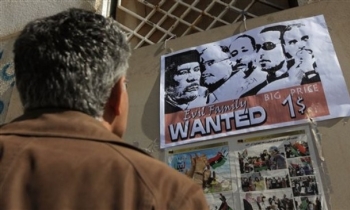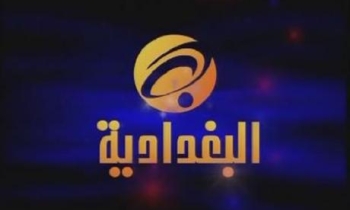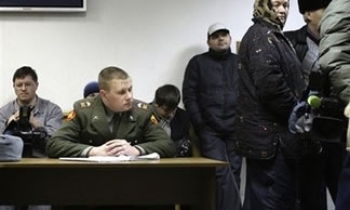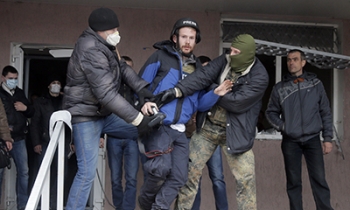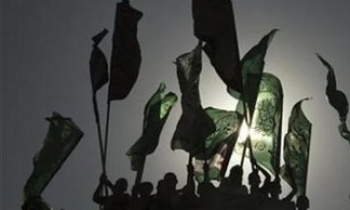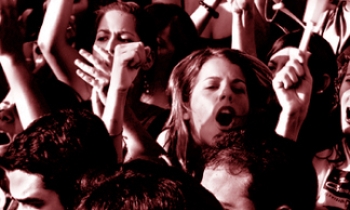Russian lawyer Karinna Moskalenko, who represents the family of slain Novaya Gazeta journalist Anna Politkovskaya, has been the target of an apparent poisoning in Strasbourg, France, press freedom organisations have said. This has come days before she was due to appear in a Moscow court for pretrial proceedings for three suspects charged in Politkovskaya’s October 2006 slaying.
“We are shocked by this apparent attempt to intimidate Karinna Moskalenko,” Nina Ognianova, Europe and Central Asia Programme Coordinator of the New York-based Committee to Protect Journalists (CPJ) said. “We wish Moskalenko and her family a speedy recovery, and we call on French and Russian authorities to investigate the matter thoroughly.”
“This clearly seems to echo other recent cases of poisoning of Russian dissidents,” Paris-based Reporters sans Frontières (RSF) said. “The impunity enjoyed by the perpetrators of the earlier cases may have paved the way for further criminal activity of the same kind. The French authorities must undertake to ensure that the police and judicial authorities have the resources they need to establish all the aspects of this case, identify everyone responsible, and bring them to justice.”
Moskalenko was sickened by a mercury-like substance she found beneath the rugs of her car on Sunday morning, according to Sergei Sokolov, Novaya Gazeta’s deputy editor-in-chief. French police opened a criminal investigation but have not commented publicly, news agency Agence France-Presse (AFP) reported. Investigators were working to identify the substance, which the Moskalenkos found because the car’s rugs were not fitting properly, according to Russian press reports.
Moskalenko had felt weak for several days, suffering nausea, coughing, swelling, and headaches, CPJ said quoting Russian press reports. The lawyer, who lives part-time in Strasbourg with her husband and three children because of her frequent appearances before the European Court of Human Rights, told the independent Russian radio station Ekho Moskvy, that her children suffered similar symptoms.
Sokolov, who is in contact with the lawyer, said Moskalenko and her family were examined by doctors in Strasbourg today and were told they would recover. Doctors did not publicly disclose a diagnosis, but the lawyer said she believed the illnesses were tied to the substance.
Sokolov said lingering illness would preclude Moskalenko from travelling to Moscow for Wednesday’s scheduled opening of the Politkovskaya murder proceedings. A preliminary hearing in the case against Sergei Khadzhikurbanov, a former police officer with the Moscow Directorate for Combating Organised Crime, and brothers Ibragim and Dzhabrail Makhmudov is due to start on Wednesday in Moscow District Military Court, Sokolov said. He said Politkovskaya’s son, Ilya, and defense lawyer Anna Stavitskaya are expected to seek a postponement because of the Strasbourg incident.
The preliminary hearing is significant. Sokolov told CPJ that the hearing would determine whether the case would be heard by a jury or a judge; if the defendants would be held in custody during the proceedings; and whether the trial would be open to the public. Novaya Gazeta and CPJ have called for the proceedings to be open.
Sokolov told CPJ that the motive for the apparent poisoning is unclear. Moskalenko has been involved in a number of sensitive cases. Her clients include Mikhail Khodorkovsky, the imprisoned former chief executive of oil conglomerate Yukos; Garry Kasparov, the world chess champion turned opposition leader, dissident Aleksandr Litvinenko, who was killed in London in 2006; and the relatives of slain journalist Dmitry Kholodov, who was murdered in October 1994.
Moskalenko and her team of lawyers at the Moscow-based International Protection Centre have won 27 cases before the European Court of Human Rights and have more than a 100 cases pending, according to the Russian independent news website Gazeta. She has represented families of torture victims in Chechnya, as well as relatives of victims of the 2002 Nord-Ost theater hostage crisis in Moscow and the 2004 school hostage crisis in Beslan.

